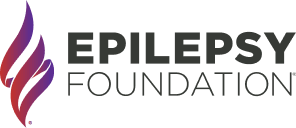Psychosis
Psychosis (known to psychiatrists as psychotic disorder) is a severe mental disorder in which the person loses contact with reality. The prevalence of this type of disorder in people with epilepsy has not been established, but the percentage affected is certainly small. It does seem clear, however, that some forms of psychosis are closely linked to the occurrence of seizures and differ from the psychotic disorders that affect other people. In general, psychotic episodes in people with epilepsy tend to be less severe and respond better to therapy.
- Feeling that you are losing contact with reality is frightening. If you have had this feeling, don't be embarrassed to discuss it with your doctor. It's important to report it because the doctor may be able to refer you for additional help. If it happens to a family member, make sure that the person's doctor is aware of it.
Psychosis in people with epilepsy is most often classified according to the time when episodes occur, in relation to seizures:
Postictal psychosis has been estimated to affect between 6% and 10% of people with epilepsy.
- It involves psychiatric symptoms that occur within 7 days (usually within 1 to 3 days) after a seizure or seizure cluster in a person who does not have these symptoms at other times (or at least has them in a much milder form).
- These symptoms may include delusions, depressive or manic psychosis, or bizarre thoughts and behavior. They generally disappear promptly when treated with low doses of medication.
- They are more common after secondarily generalized tonic-clonic seizures, especially in people who have had seizures for a number of years.
- Insomnia is usually the first sign of postictal psychosis, so the psychotic symptoms often can be prevented if a medication like risperidone (Risperdal) is given promptly when insomnia occurs in a postictal situation.
- Some people with epilepsy experience postictal psychosis after most seizure clusters, so it is reasonable to give these people medication without waiting for insomnia to occur.
- Some studies have found that postictal psychosis is much more common in people with independent seizure foci on both sides of their brain.
Ictal psychosis typically involves a type of nonconvulsive status epilepticus.
- The use of an EEG is important in making the diagnosis, as ictal psychosis often involves unresponsiveness and automatic movements that also may occur in psychotic disorders that are not related to seizures.
Interictal psychosis can occur at any time, with no relationship to the timing of seizures.
- It is usually seen in people with partial epilepsy and sometimes indicates the presence of small tumors in the brain. If the seizure focus is localized to a single area, effective epilepsy surgery may be possible. Some other people with interictal psychosis have widespread brain abnormalities.
Other psychosis. A rather unusual type of psychosis in people with epilepsy occurs when seizures are well controlled by seizure medicines.
- The psychotic symptoms are inversely related to the occurrence of seizures, generally in people who have had epilepsy for a long time.
- The cause of this phenomenon, which is called alternative psychosis or forced normalization, is uncertain. If the seizure medicines are reduced until seizures recur, the symptoms of psychosis will stop.
- A milder form of this situation may be seen in the moodiness or depression that people with epilepsy often experience in the days just before a seizure.
- Sometimes it can be difficult to distinguish between alternative psychosis and the psychosis that occasionally occurs as a side effect of most seizure medicines. The medication is likely to be the cause of the psychosis if the person is still having seizures or is also showing symptoms such as tremor or other movement disorders.
- Temporal lobectomy is followed by psychosis in a small percentage of patients. The risk has been found to be greater under the following circumstances, though not all of these findings are fully understood.
- Age over 30 years
- Family history of psychosis
- Surgery involving the right temporal lobe
- "Alien tissue" (tumors or dysplasia) in the resected lobe
Psychosis not related to epilepsy: Of course, some people with epilepsy also have psychotic disorders (such as schizophrenia) that are not directly related to their epilepsy. They are treated in the same way as other people with the same disorder, except that both the neurologist and psychiatrist need to consider the interactions between seizure medicines and the medications used for the psychosis. Most medications used to treat psychotic disorders make seizures more likely, and medication interactions may require both doctors to prescribe dosages that differ from what they usually give to other patients.
Most of the information in this article is based on Kanner AM: Psychosis of epilepsy: A neurologist's perspective. Epilepsy Behav 2000; 1(4):219-227.
Resources
Epilepsy Centers
Epilepsy centers provide you with a team of specialists to help you diagnose your epilepsy and explore treatment options.
Epilepsy Medication
Find in-depth information on anti-seizure medications so you know what to ask your doctor.
Epilepsy and Seizures 24/7 Helpline
Call our Epilepsy and Seizures 24/7 Helpline and talk with an epilepsy information specialist or submit a question online.
Tools & Resources
Get information, tips, and more to help you manage your epilepsy.


